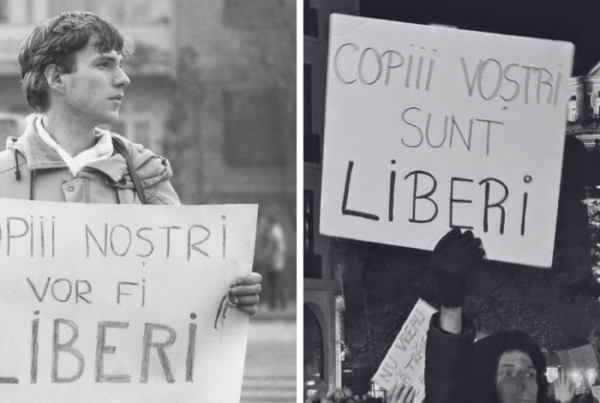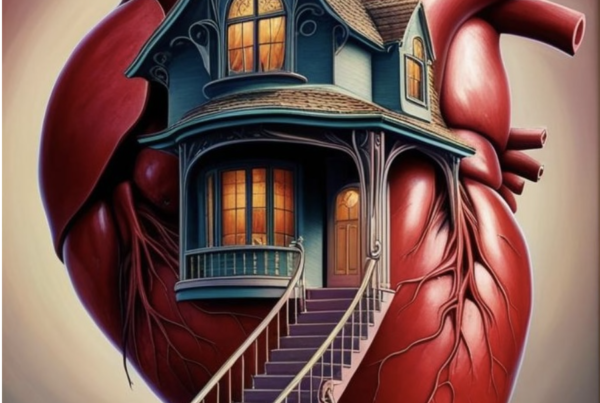By Dick Paul OUKO
If you should take my Child, Lord
Give my hands strength to dig his grave
Cover him with earth
Lord send a little rain
For grass will grow
…
But Lord, do not send me
Madness
I ask for tears
– Jonathan Kariara
Growing up, my Mom would constantly remind me of the Swahili phrase: hata mimi siku moja nitalala translating to One day, I too will be gone. It would sting my heart. I remember pleading with her to stop, as I always believed that words carry with them some powers. I still do. I have always been afraid of death lurking in the shadows, and the very mention of it could call it from its hideout into action. She would then counter my arguments with a script from the Bible’s book of Ecclesiastes 7: 4, reading that a wise person thinks about death, but a fool thinks only of a good time. It is a philosophical debate and one that I lost every damn time. Brought up in an African Christian family, I could never argue with the Bible, let alone the parent. But again, I have come to realize that it was not an argument with the Bible but rather the discerning of its contents. A search for the meaning of life in the vast chapters.
I was around ten years old at the time, with my whole life revolving around school, home, and the fields where I grazed my grandfather’s cattle. Cushioned from the outside world in a village in Western Kenya, life seemed peaceful and full of challenges that I could and did easily overcome. I could not understand why she invited my thoughts into this philosophical arena of trying to comprehend the meaning of life at such a young age. How could I? I was just a child, so I thought.
Ten years later, sitting in my room, miles away from my home village, I cannot help but think back at those discussions we did have under the moon and around small bonfires. This has been especially during the past six months, which have been testing and agonizing at a personal level. I have lost five friends and classmates in such a short period that healing from each loss has been just so impossible. Is it even possible to heal from such losses? Should we even heal from the losses? Globally, the past two years have also been full of deaths all around; in a magnitude that a 10-year-old would not have anticipated. It has been a wailing world that has forced many young people to live with the realities of losing people close to us in great numbers, unexpectedly and, at times, in quick succession. The command to accept death as a rite of passage beyond our control has been shoved down our throats.
But who says which age is the best to lose friends, classmates, or age mates? We all want to grow old side-by-side with friends. We want to see them walk down the aisle, get that degree, and welcome their first child. We want to celebrate their successes with them and hold their hands when life takes them through tempting periods. However, life, lacking any formula, cannot just let it be.
Where does the strength of waking up every day and pushing on with one’s own life come from when mourning? When every phone call from home sounds like an angel of doom and impending sadness. I accept that life is not fair, but when can one catch a break?
I have hidden my grief from many people, even friends. At times, thoughts of informing my friends of these losses and, in turn, having them be bogged down by losses that are technically not theirs, cross my mind. I decide to keep it in. Grief forces one to question the existence of everything, even those friends who are there to share in grief and happiness with you. The traditional African conservative man in me says I should not show sad emotions in public. That if I have to wail, I should do it inside. That I cannot have a public outburst because I am “a strong African man.” To show emotion is weakness. Am I not already weak from these losses? What advantage do I have in maintaining a strong “outward-looking” figure of a man when the inner man in me stays broken? In grief, different worlds of thoughts, pain, and happiness jostle for a space in our minds. Each wants attention. The tragedy is that life does not wait for one to recover from a loss. The wheels of everyday life keep turning, and one either grieves as they move along, showing a happy face or lets it all fall apart in grief. Sometimes we do not let it fall apart, but it just bogs us down. The stream of emotions sweeps us from under the feet to inner journeys from which a recovery might seem beyond one. A monologue from Jay Z’s ‘Smile,’ speaks to me whenever I think through my choice of just keeping on with the hustles and bustles of life: Living in the shadows. Can you imagine what kind of life it is to live? In the shadow, people see you as happy and free because that’s what you want them to see. Living two lives but not free.
Without the warmth of friends covering you through the grief, it is easy to give in to the other daily struggles, such as schoolwork. Without friends who listen to us, it becomes all too easy for one’s shadowy self to take over. It becomes all too easy to live in grief without appreciating and celebrating the joyous moments with gone loved ones. To cherish the times you disagreed on simple things that at the time seemed to be straining your relationship but turned out to be the paste that glued it together. That ring of friends is what encourages one to keep pushing on. To keep fighting the struggles, with full knowledge that should you slump, someone watching your back will always provide a shoulder to lean on. So even as Jay Z questioned the need for these “shadows’ ‘ that we live in at times, I think that they are important at times, but only with strong support from friends or family, as I have had in these last six months. A support not meant to insulate one from the pain but help keep one sane as one goes through the difficult periods.
To my friends, I have too often expressed my concern of probably having these griefs catch up with me in the (near) future, when it all becomes unbearable to keep putting on a strong face while grieving. I have always felt like I do not deeply immerse myself in mourning. However, is there a mourning formula? I favor the idea of carrying that grief with us as we move through the terrains of this fickle life. If we should smell something that reminds us of these departed friends, we will mourn. That anything that reminds us of them should set us into a path of remembrance of the happy moments that we shared together, the adventures we had together, and even the struggles we went through together. Carrying the grief with us then becomes a testament to the appreciation of the years we spent knowing them, and that they harvested fruits of growth, delight, joy, and peace from the gardens of our friendship. Having these memories etched in our minds is what honoring our friends looks like. After all, don’t we want to be remembered, honored, and cherished too?

Anselm Kiefer, “Die Orden der Nacht (Orders of the Night)”, 1996, acrylic, emulsion, and shellac on canvas, Seattle Art Museum
As I say goodbye to the friend that I have known for the longest time, I can only hope to carry the grief with me every day, and that the circle of friends around me will keep supporting me as they always have and will continue to do. I accept that I can no longer control the thousands of outcomes in this life, death being one of them. I can and will always remind myself of the rich moments we spent together. Of the wealthy friendship that not even death will take away from us. Of the eternal story that I will keep telling myself even when my friend lies silent. The fickleness of life can only remind us of the need to appreciate every morning that the sun shines its radiant rays on our faces. Appreciating the present as the present that it is.
Other posts that may interest you:
Discover more from The Sundial Press
Subscribe to get the latest posts sent to your email.





